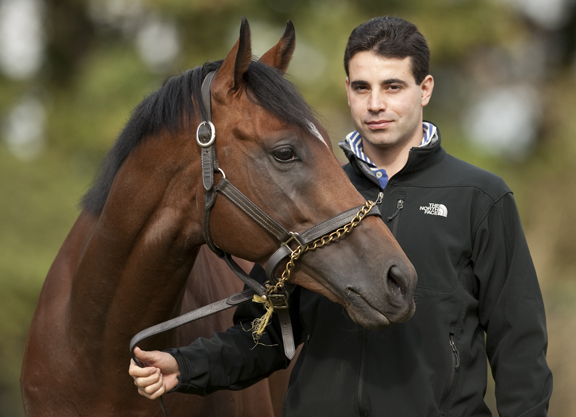Following a decision taken at a meeting of the Deutscher Galopp board on Monday night, German races will remain closed to international starters from nations which currently do not allow foreign runners. This will include the first Classic of the German season, the G2 Mehl-Mulhens-Rennen (2000 Guineas), which is set to be run on Monday at Cologne.
A statement released on the German racing authority's website read, “Deutscher Galopp is clearly and unreservedly committed to an open Europe. The free movement between partnered racing nations is a cornerstone of thoroughbred breeding, which has always been international. With the controlled opening, foreign starters can now be admitted to German races. However, this does not apply to those racing nations that unfortunately currently deny German horses permission to start. Unfortunately, the British Horseracing Authority, France Galop and Horse Racing Ireland have decided to take this step.
“Deutscher Gallop will continue the constructive dialogue with the sister associations in order to achieve mutual opening as soon as possible and thus return to the international normality which prevailed before the coronavirus pandemic. Until then, horses from these countries cannot start in German races.”
British-based trainer Marco Botti has won the Mehl-Mulhens-Rennen twice in the past with Excelebration (Ire) in 2011 and Knife Edge (Ire) five years later. This year he had been planning to run Malotru (GB) (Casamento {Ire}), the winner of the listed Spring Cup at Lingfield in February. The colt is owned by The Hon Earle Mack and Les Boyer and also won last season's G3 Premio Primi Passi in Milan before finishing fourth in the G2 Gimcrack S. back in England.
Botti said, “It's a difficult situation now because obviously the horse is fit and that was the race that we were really looking forward to running him in. I haven't spoken to his owners yet and I will be asking their thoughts are as well. The plan is for him to go to America in the summer but my understanding is that at the moment it wouldn't be so easy to travel. There is a race at Belmont on 20th June but I believe it wouldn't be that easy at the moment to send the staff to America.”
He continued, “I'm also considering whether he should run in the English Guineas. While he's fit and he's had a run, I know it's a really tough race but we've got to June and other horses haven't run and you never know. I'm just looking at all the options for the owners. There's also Royal Ascot of course, the Jersey or the St James's Palace. Maybe we should take advantage as he has had a run—you could go to Newmarket and other horses might need the run. So we just need to reconsider basically. If he hadn't finished his race so well at Lingfield it's something I would never do, to go to the English Guineas. The plan was to step up to a mile and run on a flat mile with a bend rather than a straight course, but then unfortunately this year it's just difficult to plan anything.”
Deutscher Galopp president Dr Michael Vesper said that he regretted the fact that runners from Britain, Ireland and France could not compete in Germany in the short term. He added, “Controlled opening is best suited to the interests of both owners and active participants in these very challenging times.”
With British racing set to resume on Monday, international runners will only be allowed to take part in the three Group 1 races in the first fortnight—the Coronation Cup, 2000 Guineas and 1000 Guineas. Thereafter, foreign-trained runners will be accepted for group and listed races. In Ireland, where racing is scheduled to restart on June 8, international competitors will be accepted in Group 1 and 2 races only until the end of June. France Galop is expecting to be able to accept overseas horses from mid-June but none will be permitted for the first two French Classics, the Poules d'Essai, this coming Monday at Deauville.
Not a subscriber? Click here to sign up for the daily PDF or alerts.






